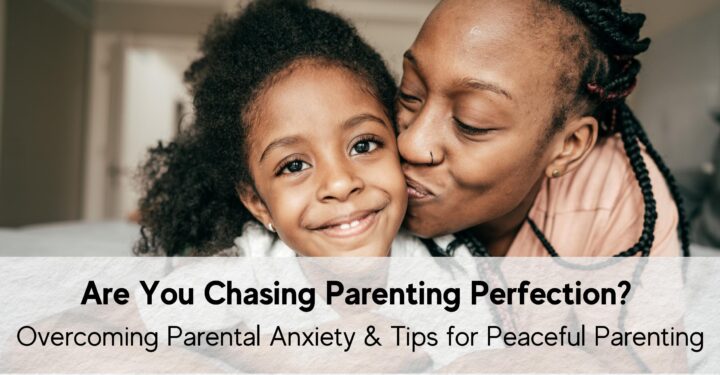Parenthood is an extraordinary journey filled with love, joy, and endless learning opportunities. Every parent wants what is best for their children and strives to provide them with a nurturing and supportive environment. However, along with the joys of parenting comes a common struggle known as parental anxiety.

Parental anxiety is the overwhelming fear of making mistakes and not living up to the expectations of being a perfect parent. It is a feeling that many parents experience, as they constantly question their choices and worry about the consequences. While this anxiety may stem from a place of good intentions, it can hinder a parent’s ability to truly grow and evolve in their role.
The concept of parenting perfection has been ingrained in our society, with unrealistic portrayals of picture-perfect families flooding social media and the mainstream media. Parents often feel pressured to conform to these unattainable standards, believing that anything less than perfection is a failure. This constant comparison and self-doubt can lead to a great deal of anxiety and self-criticism.
However, striving for perfection in parenting is a futile endeavor. Parenting is a dynamic and ever-changing journey, filled with ups and downs. It is not a static process that can be perfected, but rather a continuous learning experience that requires adaptability and growth. The key to becoming a better parent lies in progress, not perfection.
Progress in parenting is all about embracing the imperfections and acknowledging that mistakes will happen along the way. It is about learning from these mistakes, growing as an individual, and finding new ways to connect with and understand your child. Progress is the ability to reflect on your parenting choices, make adjustments, and strive for a better tomorrow.
How can parents overcome parental anxiety and embrace progress in their parenting journey?
Focus on the Postitive
Firstly, it is important to focus on the positives. Celebrate the small wins, no matter how insignificant they may seem. Acknowledge your efforts and take pride in the growth you have already achieved as a parent. By shifting the focus to the positive aspects of your parenting, you can build confidence and reduce anxiety.
Support & Guidance
Secondly, seek support and guidance. Parenting is not meant to be done alone, and there is no shame in asking for help. Whether it be from friends, family, or professional resources, reaching out for support can offer valuable insights and reassurance. Surrounding yourself with a strong support system can also alleviate parental anxiety, as you realize that you are not alone in your struggles.
Practice Self-Care
Another important aspect of overcoming parental anxiety is practicing self-care. Parenting is a demanding and selfless role, but neglecting your own well-being will ultimately hinder your ability to be the best parent you can be. Take time for yourself, engage in activities that bring you joy, and prioritize your mental and physical health. By taking care of yourself, you will be better equipped to handle the challenges of parenting with a clear mind and a positive attitude.
Expect Missteps
Finally, it is crucial to let go of perfectionism and embrace imperfection. Understand that making mistakes is a normal part of the parenting process and that your child will benefit from experiencing your humanity. It is through imperfection that growth and resilience are fostered, both in parents and children alike. Embracing imperfection allows for greater flexibility, adaptability, and learning opportunities.
Becoming a better parent is not about striving for perfection, but rather embracing progress.
Parental anxiety, fueled by the pressure to be perfect, can hinder a parent’s ability to grow and thrive in their role. By shifting the focus to progress and acknowledging that mistakes and imperfections are a natural part of the journey, parents can embrace their own personal growth and provide a nurturing and loving environment for their children. Remember, progress is the true measure of success in parenting, not perfection.

